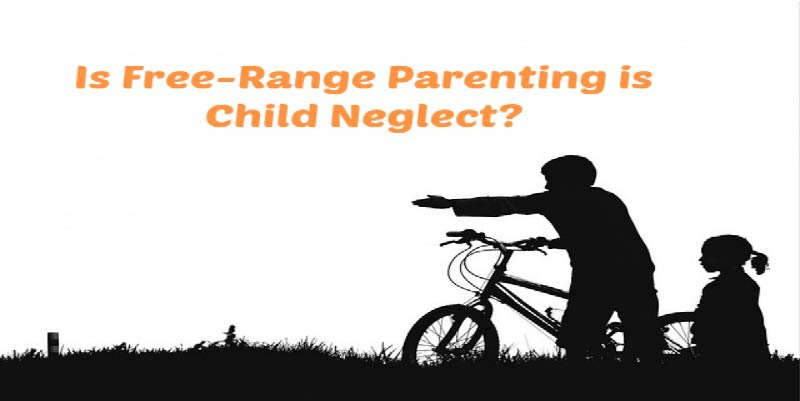A couple in Maryland are behind the recent outrage surrounding “free-range parenting.”
What is free-range parenting?
If wild chickens running freely outside in the grass comes to mind, don’t be ashamed, that was also my first thoughts as well. Wikipedia states, “Free range denotes a method of farming husbandry where the animals, for at least part of the day, can roam freely outdoors, rather than being confined in an enclosure for 24 hours each day.”However in reference to human children, free-range parenting is the term given when parents take a hands-off approach to raising their kids. The term is new, but the parenting style has existed for decades. Free-range parenting is the complete opposite of over-involved helicopter parent. Lenore Skenazy New York Sun Columnist and author of the book Free-Range Kids says “[free-range parenting] is a decision to give your children freedom and responsibility while preparing him for it” (source). But as intriguing as the words free-range sound, how safe is it to let your children find their own way in this world without a parent watchfully looking on in the distance?
Child neglect is NOT free-range parenting?
V61.21 Neglect of Child
Child abuse and neglect may include, but are not limited to:
• Consistent and/or frequent conflict between parent and child
• Parental incompetence
• Lack of parental control in the home
• Poor parent-child communication
• Inappropriate use of discipline / heavy discipline or over-punishment
• Unrealistic expectations of child’s behavior
• Reports of truancy on the part of the child
• Parent overprotective of child
• Parental isolation of child
• Reports/descriptions of physical/sexual abuse by the parent or other adult (hitting,
kicking, slapping, torture or sexual activity)
• Reports/descriptions of emotional and verbal abuse including: withdrawal of
affection and humiliation
• Failure to provide a nurturing and safe living environment
• Misappropriation of the minor’s trust-funds; earnings or other financial
assets/properties via coercion and or manipulation.
Whether or not you agree or disagree with parents who practice free-range parenting they are not letting go of their kids because they don’t want to watch them, nor are they neglecting them. There is an intentional move by the parents to teach their children first and then allow their kids to practice what they have learn in the real world. While they recognize risks, they believe that letting their children go places on their own their child will learn self-confidence.
Is free-range parenting safe?
I would argue that here in America, it depends on several factors.
The related factors to consider are:
- The age of the child
- The neighborhood, where they are allowed to roam free
- The child’s ethnic background
- The child’s maturity level (which especially depends on if the child understands how to get help if and when it may be needed)
- The parent’s motivation behind their parenting style. (Motives do matter).
Would I let my children roam-free?
For the most part, I try to keep my young children within hearing distance. If I can hear them, I feel reassurance that I will be able to come to their aid if they need me. As they grow older, I will give them much more autonomy so they can learn how to develop and make decisions without me being around. However, I believe, children younger than 10 they need to have a trusted adult close by. My parenting approach is to equip them with the knowledge and lessons they need early and as they grow the lessons will set a foundation for their future behaviors.
Thus, I believe that more independence should be given to children as they earn it. Growing up I was given a good amount of freedom to go to the park, my school bus, the corner store, and library on my own. My mom preferred for me to be in a group with other children, but she felt fairly safe allowing me to play and go places outside of her site. I was in the second grade or third grade when my freedom increased. For the most part, I always felt safe, however, there were a few times when I remember seeing someone that should not have been around. One of the most dangerous experiences I can remember was when a friend and I were returning home from school and a man in a sports car drove by us and flashed dollar bills as he slowed down near us and motioned for us to come to his car. We were around 7 and 8 years old, but we knew not to go near his car. Instead we went to a nearby store and stayed until we felt safe enough to leave the store.
By far, I don’t subscribe completely to either extreme of the two parenting styles mentioned: free-range or helicopter parenting. Instead, I believe that for most children a balanced approach is best.
I love the advice Dr. Gallagher gives parents in an article on WebMD:
Gallagher suggests that parents ask themselves the following questions before allowing their children to venture off on their own:
- Does my child have the disposition to handle the activity?
- Can he or she follow rules?
- Does my child know what to do in case there is a problem?
- Does my child know from whom it is safe to ask for help?
- Does my child have a sense of how to reach out to parents, use a phone, distinguish between police officers and other people?
Overall, a moderate parenting style where you give your child as much freedom as you are comfortable with will encourage them to grow and develop the self-confidence they need to personally navigate this world.
Learn more:
*Amazon links on CleverlyChanging are affiliate link.

